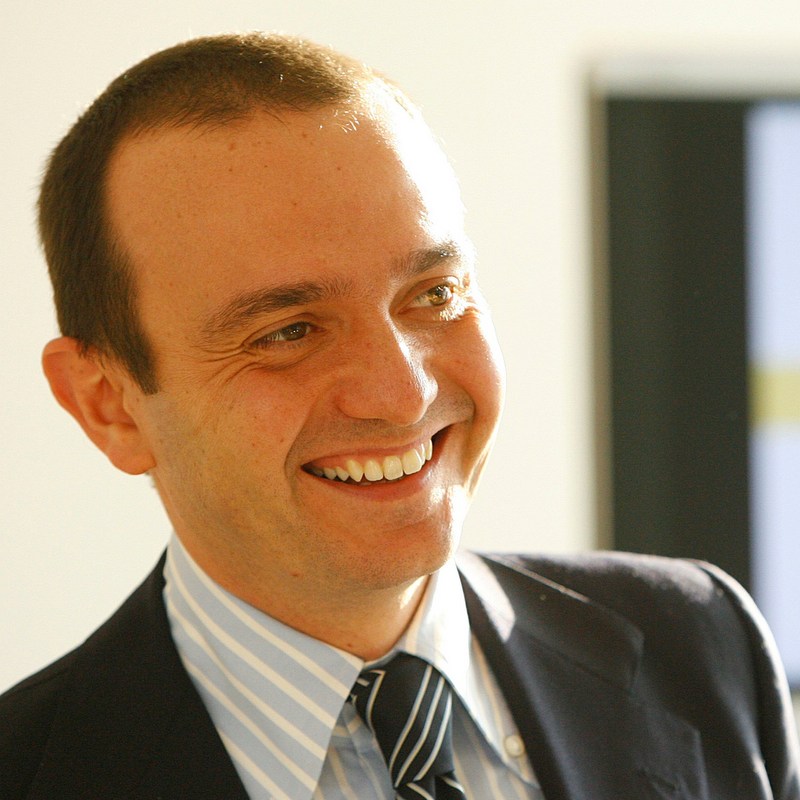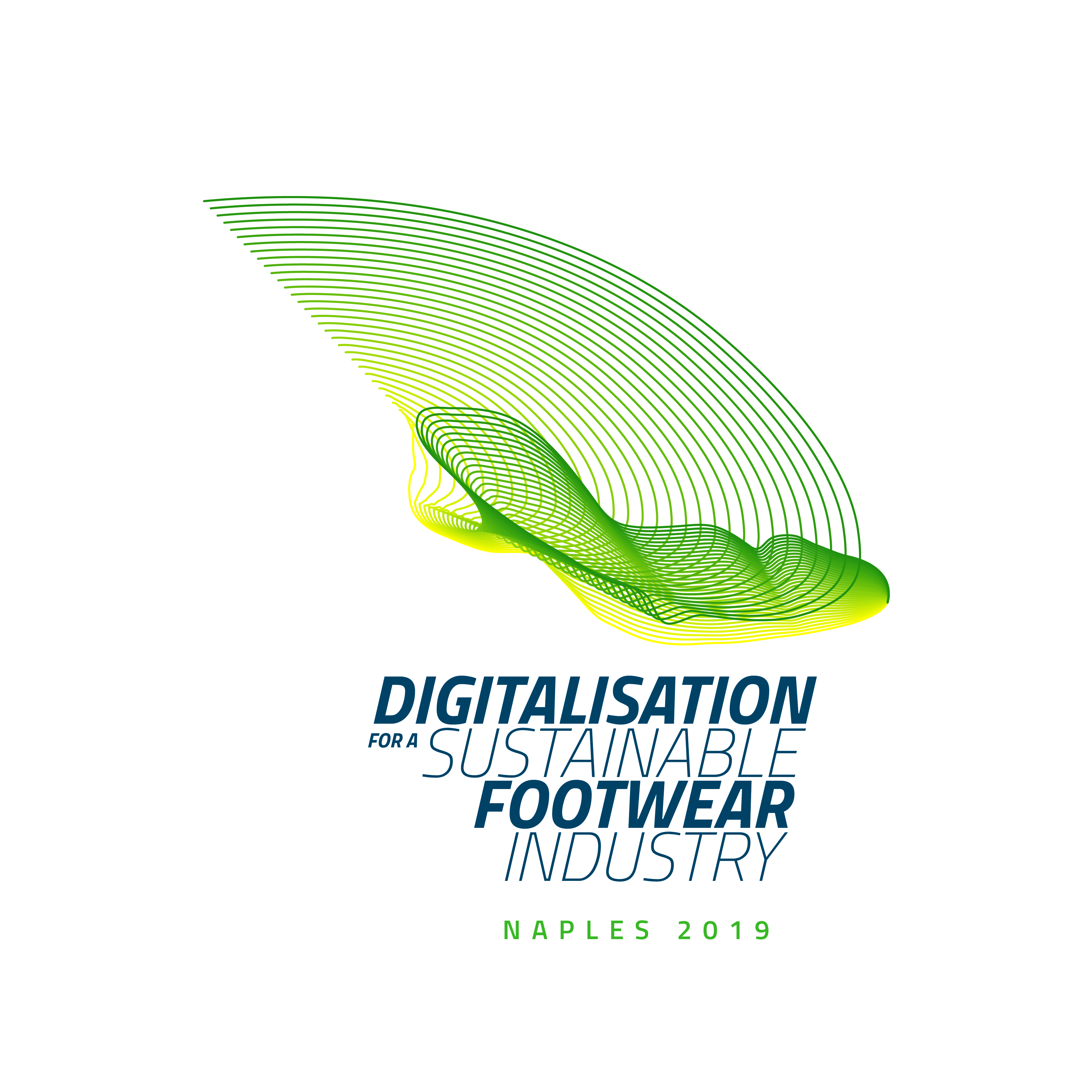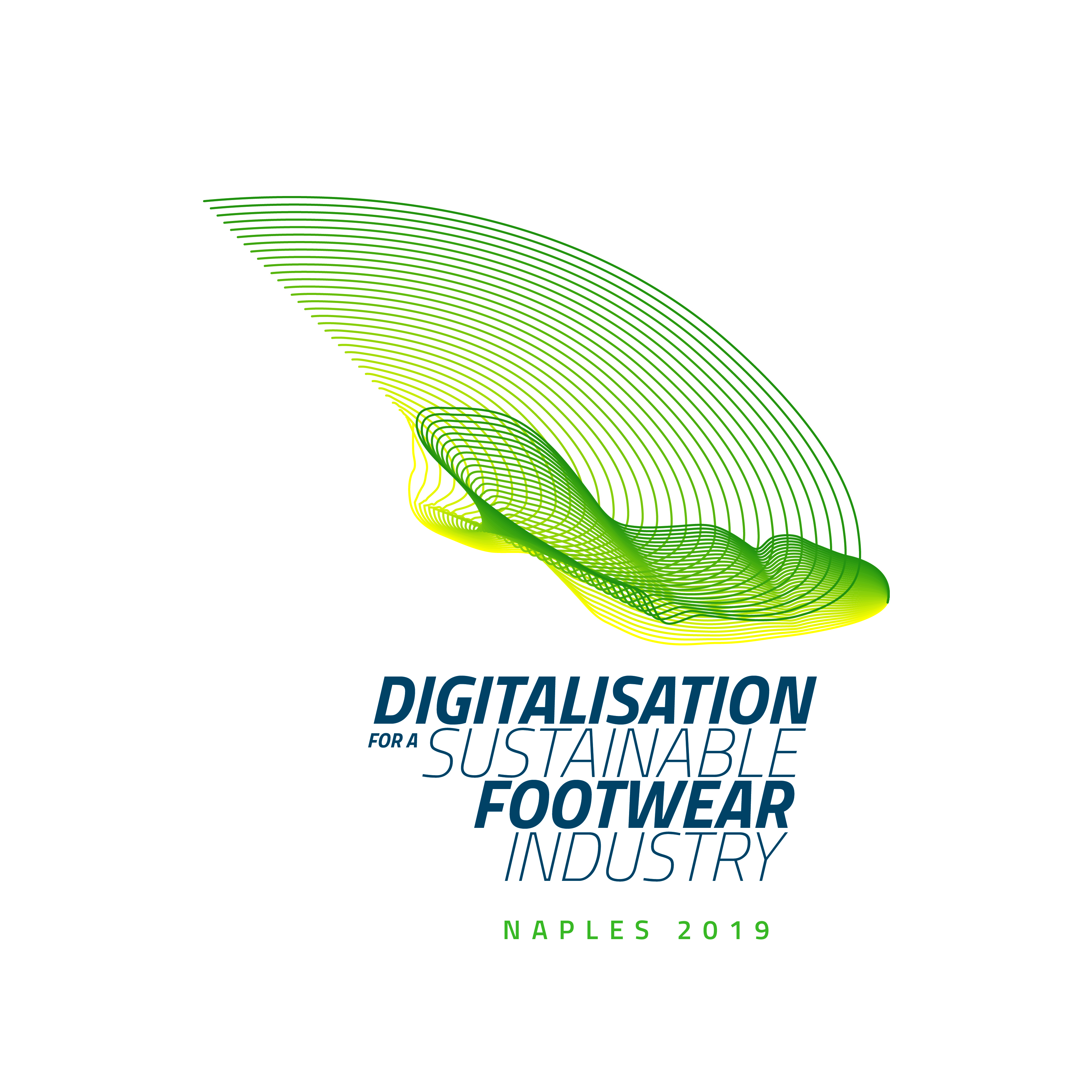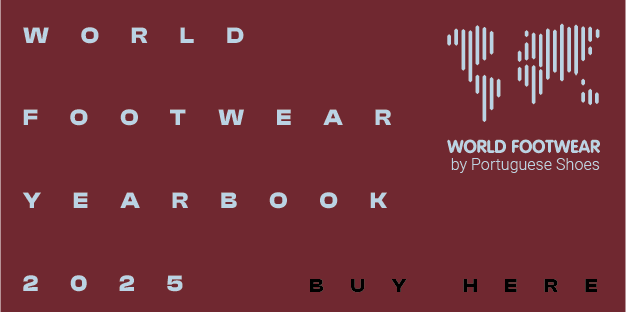Cleto Sagripanti invites the footwear industry to go to Naples

We recently talked to Cleto Sapgripanti, President of the CEC, to learn how the next World Footwear Congress to take place in Naples next April is a tremendous opportunity for professionals from the footwear industry. The conversation also focused on his experience as CEC's President
With the 6th edition of the World Footwear Congress fast approaching we talked to Cleto Sagripanti, President of the CEC, the European Confederation of the Footwear Industry. An entrepreneur and a business man with extensive experience in the shoe industry, Mr. Sagripanti shared with us some of his views on the current state of the footwear industry, while we talked about his two mandates as CEC's President and his future plans.
What would you say to our readers to convince them to attend the Congress in Naples?
The World Footwear Congress is a tremendous opportunity for professionals from the footwear industry. This worldwide event gathers a wide range of different stakeholders and gives them the chance to discuss, debate and exchange ideas to develop the sector and bring positive impacts. We are living times of rapid changes and therefore footwear stakeholders should have the same motivation in keeping up with the digitalisation while supporting a sustainable industry. The first step towards it is the participation to the World Footwear Congress 2019 in Naples (Italy). The event is opened to all categories of worldwide stakeholders shaping the footwear sector that will meet up with each other, exchange experiences and best practices. After five successful editions, we are pleased to bring back the event in Europe and set up the World Footwear Congress 2019 in Naples. This decision appears as an evident decision since Italy is very well-known for its footwear tradition and is regarded as one of the European leaders producing high-quality and added value products. We expect hundreds of participants to join us in the World Footwear Congress 2019 and be part of a change for the future of our industry.
The World Footwear Congress is a tremendous opportunity for professionals from the footwear industry. This worldwide event gathers a wide range of different stakeholders and gives them the chance to discuss, debate and exchange ideas to develop the sector and bring positive impacts. We are living times of rapid changes and therefore footwear stakeholders should have the same motivation in keeping up with the digitalisation while supporting a sustainable industry. The first step towards it is the participation to the World Footwear Congress 2019 in Naples (Italy). The event is opened to all categories of worldwide stakeholders shaping the footwear sector that will meet up with each other, exchange experiences and best practices. After five successful editions, we are pleased to bring back the event in Europe and set up the World Footwear Congress 2019 in Naples. This decision appears as an evident decision since Italy is very well-known for its footwear tradition and is regarded as one of the European leaders producing high-quality and added value products. We expect hundreds of participants to join us in the World Footwear Congress 2019 and be part of a change for the future of our industry.
Are sustainability and digitalisation, the themes of the Congress, the main challenges of the footwear industry? In what way? What else is on the agenda for the footwear industry nowadays?
The topics of digitalisation and sustainability are both challenges and opportunities for the footwear industry. They represent an integrated part of the global market place in which businesses operate. Digitalisation helps companies connect with other companies and consumers around the world and simplifies the workload. Sustainability has a double purpose: it increases companies’ profit while supporting the environment. Footwear companies need to understand that by implementing these two concepts in their everyday work, will improve their situation and contribute to a better planet. During the World Footwear Congress 2019 discussions, the footwear community will have the chance to share ideas and best practices. Our goal after the Congress is that the industry is more determined and inspired to implement or create new business models. Sustainability is part of the Circular Economy Action Plan launched by the European Commission in 2015 and that is starting to deliver. The European footwear industry is committed to align to its objectives and is aware of the importance of reducing the carbon footprint, packaging and packaging waste, but in practice these issues are very challenging, especially for SMEs which need a lot of technical and financial support. A sustainable product is also what the consumer expects when he purchases a pair of shoes. Today’s consumer is more educated and knowledgeable and, therefore, has higher demands and expectations. Consumers, especially the young generations, search for information, have a thirsty need for transparency and are in favour of certain causes. The shoemakers have to follow, reconsider and quickly adapt to consumer preferences which are not only related to fashion trends, but also to beliefs.
The topics of digitalisation and sustainability are both challenges and opportunities for the footwear industry. They represent an integrated part of the global market place in which businesses operate. Digitalisation helps companies connect with other companies and consumers around the world and simplifies the workload. Sustainability has a double purpose: it increases companies’ profit while supporting the environment. Footwear companies need to understand that by implementing these two concepts in their everyday work, will improve their situation and contribute to a better planet. During the World Footwear Congress 2019 discussions, the footwear community will have the chance to share ideas and best practices. Our goal after the Congress is that the industry is more determined and inspired to implement or create new business models. Sustainability is part of the Circular Economy Action Plan launched by the European Commission in 2015 and that is starting to deliver. The European footwear industry is committed to align to its objectives and is aware of the importance of reducing the carbon footprint, packaging and packaging waste, but in practice these issues are very challenging, especially for SMEs which need a lot of technical and financial support. A sustainable product is also what the consumer expects when he purchases a pair of shoes. Today’s consumer is more educated and knowledgeable and, therefore, has higher demands and expectations. Consumers, especially the young generations, search for information, have a thirsty need for transparency and are in favour of certain causes. The shoemakers have to follow, reconsider and quickly adapt to consumer preferences which are not only related to fashion trends, but also to beliefs.
In your view how can the European footwear industry companies position themselves to be successful? What is the industry main challenge at European level?
I believe that a successful European footwear company shall always maintain a critical eye and have alternative ways of thinking outside of the box. There are rapid changes in this industry, and in order to make sure that a company lasts in the long run, it is important that its leaders and its employees share the same values and have the intentions to redefine the values according to what is acceptable or not in the society. It is also essential to keep the right balance between what is digitalised and what is traditional and unique in the footwear manufacturing. In order to enhance companies’ competitiveness, special attention should focus on the workforce, and on upskilling employees to deliver technological innovation changes aiming at improved manufacturing infrastructure in order to rationalise production, reduce product costs and anticipate to consumers expectations. The sector suffers from an ageing workforce, which is not being replaced because of lack of attractiveness to the new generations, and this is reinforced by Vocational Education Training being considered a second rank studies-path. CEC and other partners are now working on the project ‘Footwear in the 21st century: New skills for the scientifically-led design of comfortable, sustainable and fashion-oriented footwear products’ to equip the sector with updated high-level skills required to meet the increasing consumer demands for personalised, differentiated and sustainable products, and to make the related job openings more attractive to young people with modern curriculum and innovative learning methods.
I believe that a successful European footwear company shall always maintain a critical eye and have alternative ways of thinking outside of the box. There are rapid changes in this industry, and in order to make sure that a company lasts in the long run, it is important that its leaders and its employees share the same values and have the intentions to redefine the values according to what is acceptable or not in the society. It is also essential to keep the right balance between what is digitalised and what is traditional and unique in the footwear manufacturing. In order to enhance companies’ competitiveness, special attention should focus on the workforce, and on upskilling employees to deliver technological innovation changes aiming at improved manufacturing infrastructure in order to rationalise production, reduce product costs and anticipate to consumers expectations. The sector suffers from an ageing workforce, which is not being replaced because of lack of attractiveness to the new generations, and this is reinforced by Vocational Education Training being considered a second rank studies-path. CEC and other partners are now working on the project ‘Footwear in the 21st century: New skills for the scientifically-led design of comfortable, sustainable and fashion-oriented footwear products’ to equip the sector with updated high-level skills required to meet the increasing consumer demands for personalised, differentiated and sustainable products, and to make the related job openings more attractive to young people with modern curriculum and innovative learning methods.
In your two mandates as CEC’s President what were the main challenges as the head of the European footwear?
The two mandates as CEC’s President were a big responsibility for me as they happened in times of tough trade negotiations and with a deep need of changing the image of the sector and attracting new skills workforce. The negotiations with Japan were not easy for the EU footwear industry, because of the special treatment and protection that Japan still grants to people working with leather and footwear, but following many interventions at high level, we concluded a fair deal for European shoes, even though we will benefit from it in a medium to long time. Trade negotiations with Mercosur have not started off back on the right foot for our industry because Brazil did not seem to be willing to offer market access for leather shoes, and the result would be that our European shoes continue paying the 37% when exporting to Brazil. CEC continued to participate close to the European Commission in the negotiations, in order that the right agreement for our leather shoes to access Mercosur market is reached, also in relation to the future rules of origin, but the talks do not seem to go in the right direction for European shoes. As mentioned earlier, changing the image of our sector is vital at the moment. Companies are facing with difficulties to attract young generations despite the high unemployment rates in the most traditional manufacturing countries such as Spain, Italy, Portugal, Romania and Greece. It is forecasted that around 100,000 workers will be replaced by 2025 due to ageing workforce. This is why we could not stress enough the need for cooperation among footwear industry stakeholders to tackle this issue and to attract young talents to the industry.
The two mandates as CEC’s President were a big responsibility for me as they happened in times of tough trade negotiations and with a deep need of changing the image of the sector and attracting new skills workforce. The negotiations with Japan were not easy for the EU footwear industry, because of the special treatment and protection that Japan still grants to people working with leather and footwear, but following many interventions at high level, we concluded a fair deal for European shoes, even though we will benefit from it in a medium to long time. Trade negotiations with Mercosur have not started off back on the right foot for our industry because Brazil did not seem to be willing to offer market access for leather shoes, and the result would be that our European shoes continue paying the 37% when exporting to Brazil. CEC continued to participate close to the European Commission in the negotiations, in order that the right agreement for our leather shoes to access Mercosur market is reached, also in relation to the future rules of origin, but the talks do not seem to go in the right direction for European shoes. As mentioned earlier, changing the image of our sector is vital at the moment. Companies are facing with difficulties to attract young generations despite the high unemployment rates in the most traditional manufacturing countries such as Spain, Italy, Portugal, Romania and Greece. It is forecasted that around 100,000 workers will be replaced by 2025 due to ageing workforce. This is why we could not stress enough the need for cooperation among footwear industry stakeholders to tackle this issue and to attract young talents to the industry.
What is on your agenda after you leave CEC’s Presidency?
I have been thrilled and proud to be CEC’s President for two mandates (2015-2019). It has been an enriching experience for me to work on Secretary General Carmen Arias’ side. I do believe that our expertise on the footwear industry and our joint work have led the sector to see important improvements. It is now time for me to pass on CEC’s Presidency and to keep the work I have been doing for years in favour of the footwear business. As founder and CEO of Be71-Venice, the luxury shoes hub based in Venice, I will continue defending the Italian-made footwear and the implementation of innovative training programmes, making sure that the high-quality products we design meet the consumers’ expectations.
I have been thrilled and proud to be CEC’s President for two mandates (2015-2019). It has been an enriching experience for me to work on Secretary General Carmen Arias’ side. I do believe that our expertise on the footwear industry and our joint work have led the sector to see important improvements. It is now time for me to pass on CEC’s Presidency and to keep the work I have been doing for years in favour of the footwear business. As founder and CEO of Be71-Venice, the luxury shoes hub based in Venice, I will continue defending the Italian-made footwear and the implementation of innovative training programmes, making sure that the high-quality products we design meet the consumers’ expectations.
















